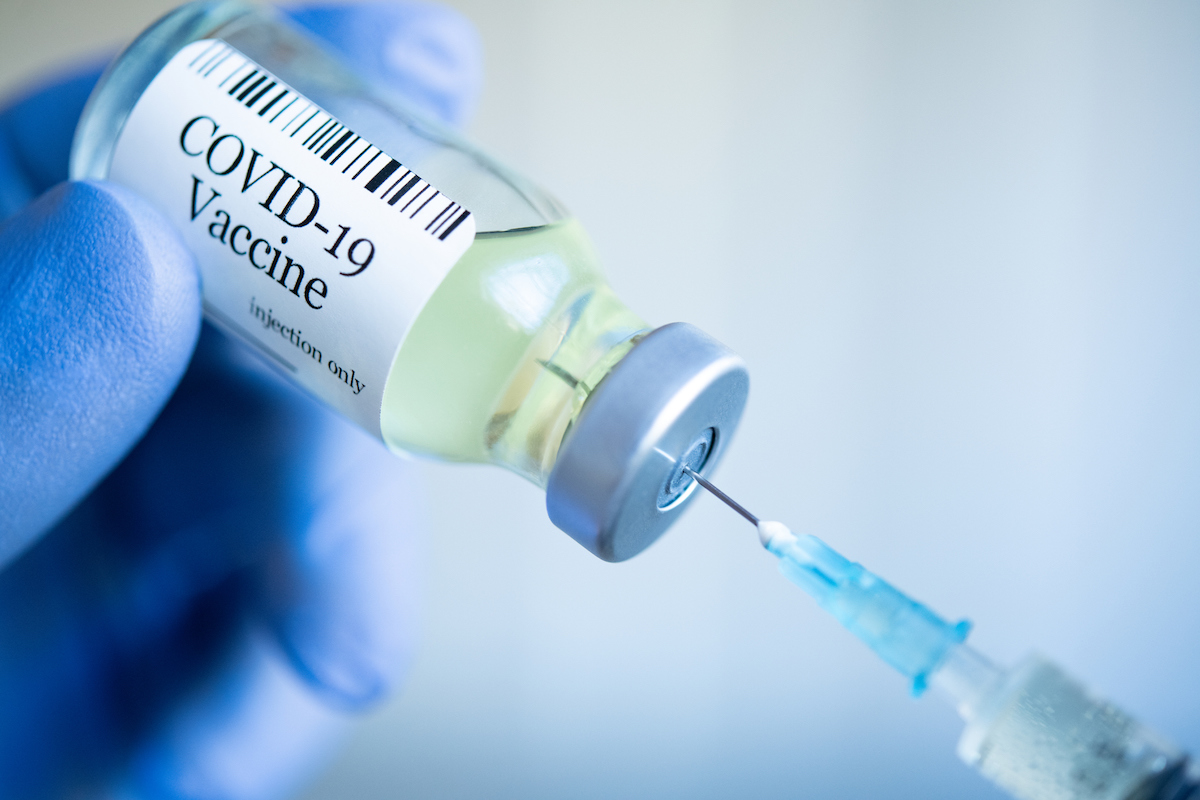<< Back
What It Means To Be Fully Vaccinated

April 29, 2021
Getting the COVID-19 vaccine is a personal choice. While most have jumped at the chance to be inoculated, millions of others have taken a wait-and-see approach.
As officials work to increase the numbers, some who have received the first dose of the Pfizer-BioNTech or Moderna vaccine have not come back for the second. That means they’re not fully vaccinated.
“Fully vaccinated means two weeks after your second dose of Pfizer or Moderna, or after your shot of Johnson & Johnson. That’s fully vaccinated,” said Dr. Corina Marcu, Associate Vice President of Medical Affairs at St. Vincent’s Medical Center in Bridgeport. “This is when your body mounts the appropriate immune response to get to the 90-95% for the vaccines.”
According to a recent data from the Centers for Disease Control and Prevention, 8 percent of those who received their first dose of the vaccine have failed to receive their second. In some cases, it has been attributed to logistical difficulties, or patients getting the dose outside of the 30 days used for the data collection. But in some cases it is a matter of personal preference.
Dr. Marcu hopes that people make the right choice to come back for their second shot.
“Some people feel they have done enough with the first shot. Again, not what we advise,” she said. “The science has been very specific, very strict with the regimen of doses. For the most part, I think Connecticut has done well, considering that we are leading the pack with vaccinations. We are seeing infection rates go down as well as hospitalizations.”
The quest to reach herd immunity against COVID-19 requires as many people as possible being fully vaccinated. But even if you have received the second dose, according to Dr. Marcu, it doesn’t mean you won’t need an additional dose later.
“This is a work in progress, but what we know for a fact is that they are protecting us six months after the vaccination. So the next step is to see if we are protected at the one year mark,” said Dr. Marcu. “Preliminary studies have shown that it’s probably safe at up to a year, and the general consensus is that we will need a booster. The timeline is yet to be determined”
As summer approaches, so does a hope for a return to normalcy. New CDC guidelines detail activities vaccinated people can safely resume, including attending small outdoor gatherings without a mask. But the newest guidelines are only for those who are fully vaccinated. Dr. Marcu fears those with only the first dose may act is if they’re fully vaccinated.
“You are going to see people dropping their mask before they are fully vaccinated.,” she said. “We strongly want to advise people not to do that if the circumstances are posing a risk for unvaccinated people. This is a guidance, this is what science tells us: in outdoors spaces, minimally attended, your risk to get COVID is less because is a low risk environment. As more people get vaccinated, we are going to be more open, and interact with each other socially, we just need to define what is safe and what is not safe and what steps we need to take.”
Stay informed, said Dr. Marcu. If you have any questions about the vaccine, or what it means to be fully vaccinated, ask.
“We are now almost six months after the first vaccinations, and some people wanted to wait and see. It looks like it’s working,” said Dr. Marcu. “The message is, ‘If you hesitated, then ask questions.’ There are a lot of healthcare people around who you can ask. And if it was difficult to get an appointment, we are now making it easily available through mega-clinics, through pharmacies, the vaccine is widely available at this point.”
If you are not sure where to go for your shot, click here for a list of Hartford HealthCare vaccination centers across the state. While appointments are recommended, they are no longer required. Walk-Ins are welcome at all Hartford HealthCare vaccine clinics.